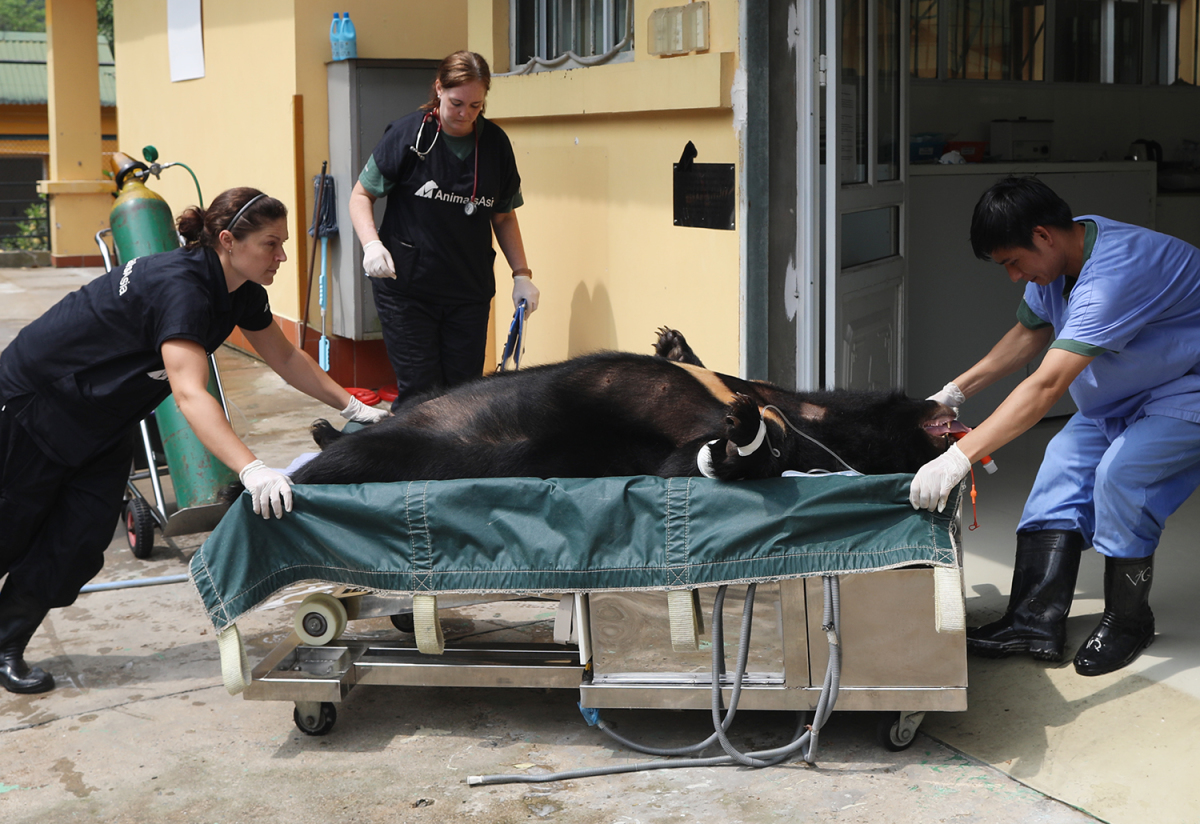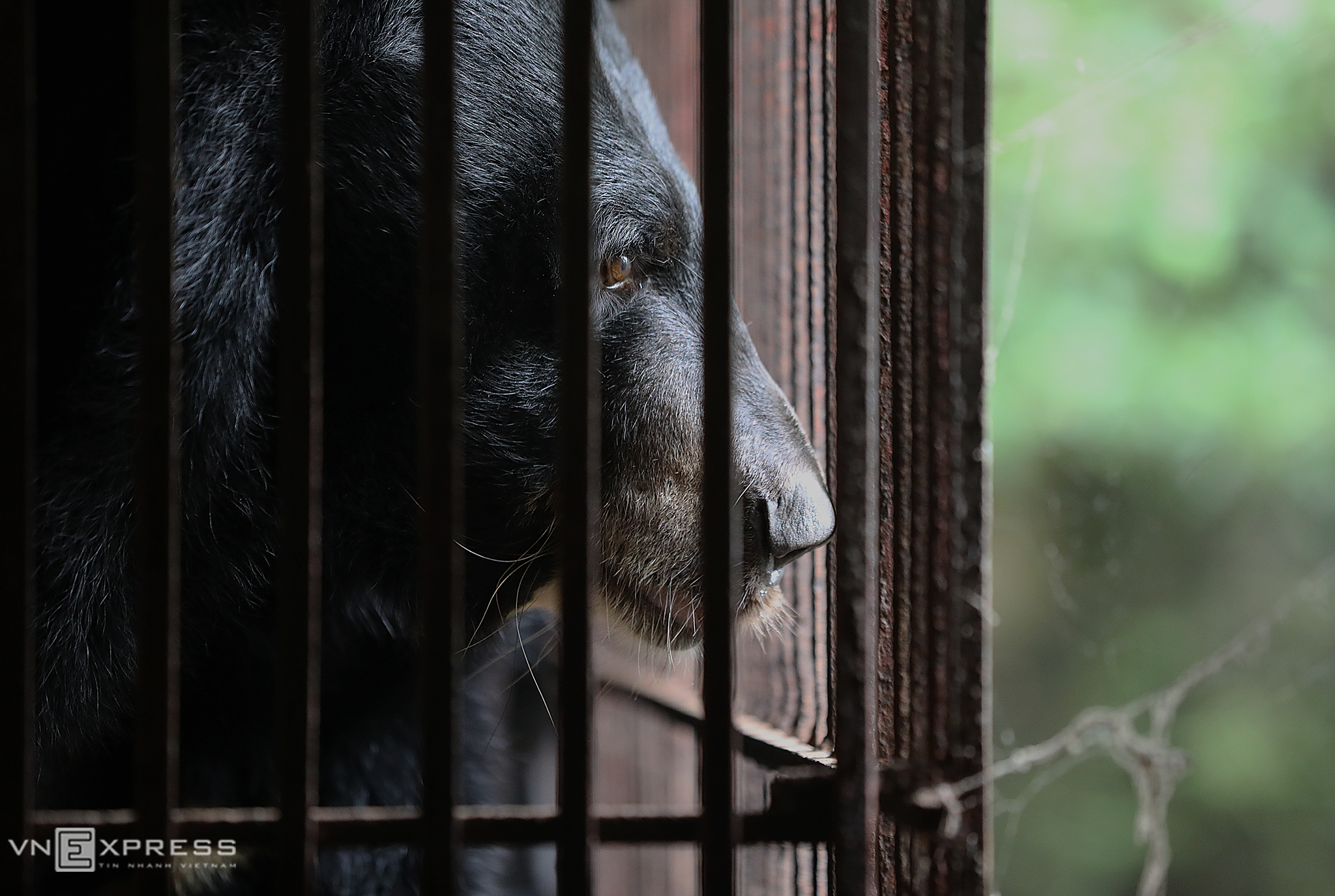The year is 2020. An Animals Asia bear rescue team is just 60 km from Pleiku after traveling the length of the country from the NGO’s headquarters in Tam Dao.
They have made the long journey to save an animal known as Cotton Blossom, who, like many bears held in captivity across Vietnam, is weak and malnourished.
Suddenly the visitors came to know about new Covid-19 travel restrictions: If they entered Pleiku, they had to quarantine for 14 days.
They decided to turn around and return to base. The rescue mission was over for the moment.
The personnel at Animals Asia’s bear sanctuary at the Tam Dao National Park have faced unprecedented challenges in the last two years since the pandemic began.
The sanctuary in Vinh Phuc Province, more than one hour north of Hanoi, is a semi-wild place spread over 12 hectares and the largest of its kind in Southeast Asia.
Moon and sun bears that were trafficked, farmed or used for extracting bile for alleged medicinal purposes get a haven here as they recoup their health and mingle with others of their kind.
Many of them have disabilities and deformities such as blindness, deafness or damaged limbs due to the cruel treatment they had endured.
This is also true of Cotton Blossom, who has since been rescued and now lives at the sanctuary along with 188 other bears.
The team dashed in when there was a brief decline in Covid incidence and rescued her.
Though bear bile farming was made illegal several years ago, many of these fabulous creatures lead tortured lives in captivity, often living in concrete cages with no sunlight and in their own feces, and usually competing with another bear inside the cage for the limited food provided.
Covid affected Animals Asia’s operations the same way it did most companies’ though, since it was still required to take care of the physical and mental wellbeing of the bears, it was unable to close down.
 |
|
Staff members at the Tam Dao National Park prepare to check on a sedated bear freed from years of living in a cage, 2019. Photo by VnExpress/Ngoc Thanh |
Tuan Bendixsen, the director of Animals Asia, Vietnam, said the biggest challenge was the disruption in food and medical supplies due to travel restrictions. “We had to change the way we work and bring forward Covid contingency plans. We now have at least three to six months’ worth of dry food and medical supplies.
“We also had to source alternative fresh food supplies in the event our normal supplies could not provide the required food due to the pandemic.”
The problems for the staff were not limited to only the bears they already had in the sanctuary; they also faced great difficulty in rescuing bears like Cotton Blossom from captivity since localities had inconsistent lockdown and travel restrictions.
Bendixsen added: “It was a nightmare trying to cope with the different guidelines and rules. Also, things were changing very quickly when Covid was spreading, and therefore it was very difficult to respond.”
Though the pandemic has created a multitude of problems for the sanctuary, its funding was not affected as much as first feared. It was able to cut back on certain activities and ensure it could pay its staff and maintain most activities.
Besides, as Bendixsen explained: “Because of the pandemic, lots more people are at home. We have a very large captive audience with people spending more time on social media. That gives us the opportunity to tell them more about our work and that has helped our funding.”
Recently the NGO signed a critical memorandum of understanding with the government to put an end to bear farming in Vietnam.
Bendixsen highlighted the aims of the MOU: “Close down all bear farms and send the bears to the Vietnam Bears Rescue II at Bach Ma National Park in Hue, improve the welfare of captive bears in circuses, zoos, and other national reserve centers in the country and implement plans to conserve Vietnam’s remaining wild bear population.”
 |
|
A female moon bear sits in a cage at a farm in Phu Tho Province, before being transferred to Animals Asia’s team on November 3, 2020. Photo by VnExpress/Ngoc Thanh |
Approval from the Ministry of Agriculture and Rural Development is awaited for building the new rescue center. Animals Asia hopes to build it by 2023 and close down all bear farms in the country by 2026.
Bendixsen added: “We will also continue with our bear bile demand reduction campaign by helping schools and communities build more herbal gardens that grow herbal alternatives to bear bile plants.
“We aim to have at least 50 herbal gardens that can provide herbal alternatives… so that [people] do not have to use bear bile any more.”
The sanctuary in Tam Dao offers guided tours twice a month.
- Reduce Hair Loss with PURA D’OR Gold Label Shampoo
- Castor Oil Has Made a “Huge” Difference With Hair and Brow Growth
- Excessive hair loss in men: Signs of illness that cannot be subjective
- Dịch Vụ SEO Website ở Los Angeles, CA: đưa trang web doanh nghiệp bạn lên top Google
- Nails Salon Sierra Madre
 VnExpress News The News Gateway of Vietnam
VnExpress News The News Gateway of Vietnam





